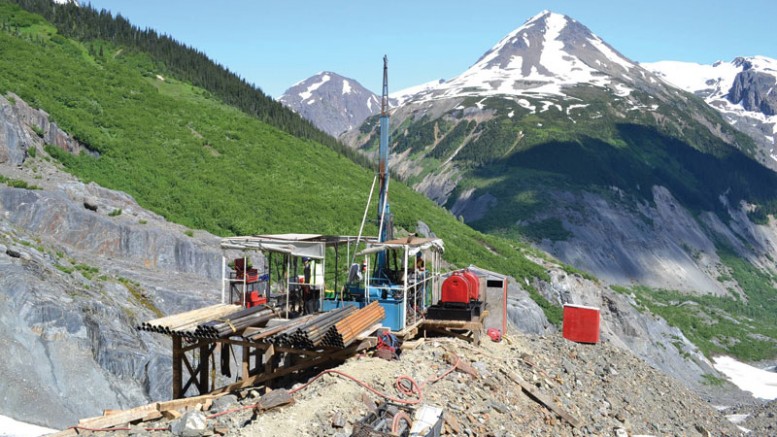GOLD: Seabridge releases KSM PEA with improved economics


BRITISH COLUMBIA – Seabridge Gold has released the results of an updated preliminary economic assessment on its KSM project. The latest study suggests a large underground block cave mine at the Iron Cap deposit, with one third of the planned production sourced from open pits at the site. This approach is the opposite of that from the 2016 prefeasibility study (PFS) on the project, where two thirds of production was from open pit sources. Last March, the company released updated resources for Iron Cap.
“The benefits of incorporating Iron Cap into mine plans at an early stage have exceeded the upper end of our expectations, not only for the improvements in projected economics but also for the reduction in environmental impact,” Rudi Fronk, the company’s chairman and CEO, said in a release.
According to the company, this mine design modification also includes higher plant throughputs and mining of deeper resources when compared with the 2016 PFS.
The latest PEA outlines a 44-year mine, producing 1.3 million oz. of gold and 265 million lb. of copper annually in the first five years of operation and suggests life of mine average operating costs of negative US$472 per oz., net of byproduct credits. With an initial capital estimate of US$5.2 billion, the after-tax net present value estimate for the project stands at US$6 billion with a 4-year payback period. This mine would produce gold and silver doré as well as a flotation copper concentrate with additional contained precious metals.
In the release, Seabridge added that the results of the 2016 PFS remain valid and represent a potential scenario for developing KSM.
The 2016 PFS outlined a 53-year mine, producing an average of 933,000 oz. gold and 205 million lb. copper, with additional silver and molybdenum in the first seven years of operations. The analysis suggested a $1.5-billion, base-case after-tax net present value (NPV) estimate at a 5% discount rate with a US$5-billion capital outlay.
For more information, visit www.SeabridgeGold.Net.
Comments